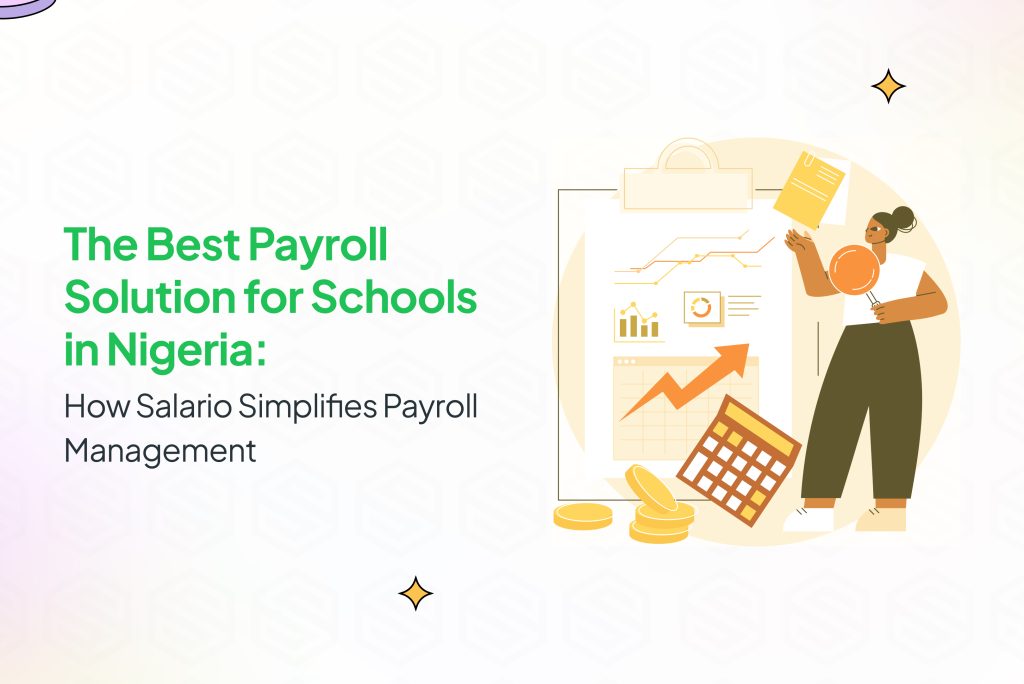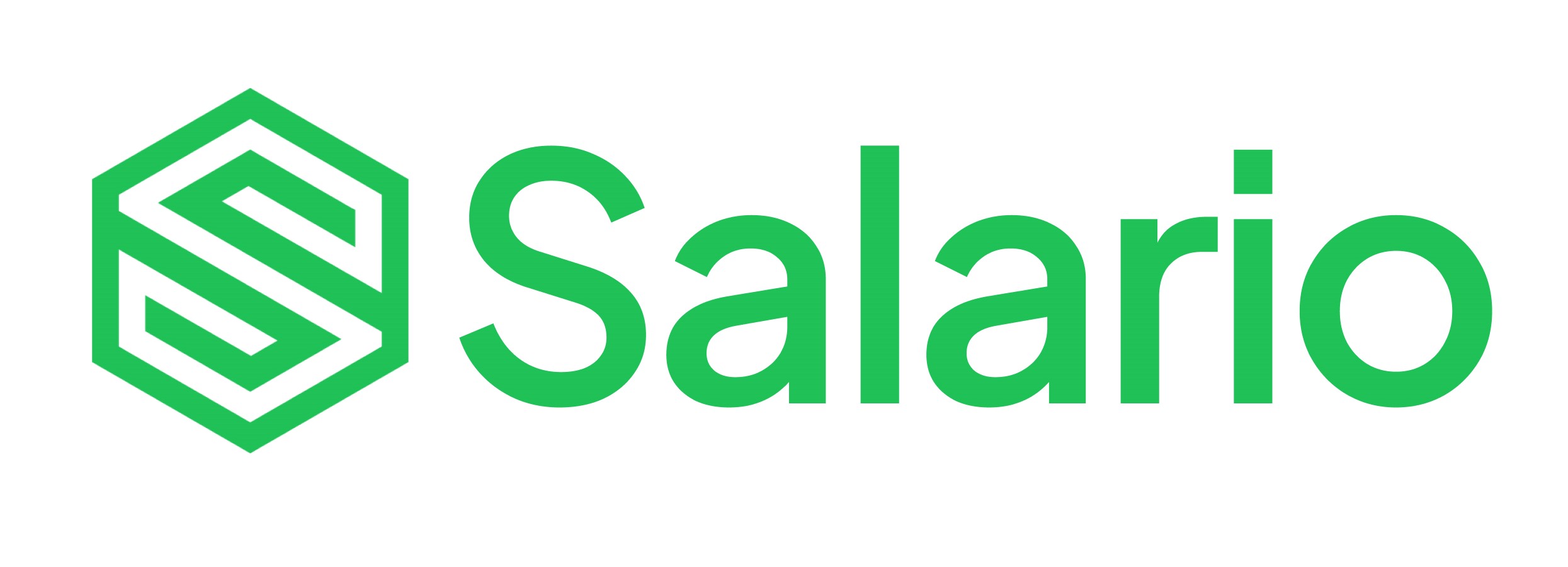
Paying salaries and ensuring that all other necessary payroll considerations are met is not easy, and this is especially true when dealing with payroll for schools. As an HR, account manager, bursar, or finance officer of a school or educational institution, looking for the Best Payroll Solution for Schools in Nigeria can be tough.
Schools have unique conditions, and this can make it difficult for them to use regular payroll platforms to meet their unique needs. In this post, we will look at the challenges school HRs and account managers face in handling payroll and how they can effectively handle payroll concerns for their schools.
What are the major payroll challenges for schools in Nigeria?
Managing payroll for schools comes with unique challenges that set it apart from payroll in other industries. Unlike corporate businesses with fixed salary structures and streamlined payment processes, schools deal with varying pay scales, irregular payment schedules, and compliance concerns. This makes finding the best payroll solution for schools in Nigeria a critical decision for HR professionals, bursars, and finance officers. Below are some of the key payroll challenges schools face.
Managing Payroll Records
Schools often struggle with proper payroll record-keeping, especially when managing teaching and nonteaching staff salaries. Without a well-organized payroll system, tracking salary history, deductions, and employee benefits can become cumbersome. Missing or incomplete records can lead to salary disputes, tax filing issues, and non-compliance with labor laws. A structured payroll system helps centralize and automate record-keeping, ensuring that every transaction is properly documented and easily accessible when needed.
Irregular Salary Payments
Many schools in Nigeria face financial constraints due to inconsistent tuition payments from parents. This often leads to delays in salary payments, affecting staff morale and productivity. Unlike corporate organizations with steady cash flow, schools rely on termly or irregular fee collections, making it difficult to ensure consistent payroll disbursement. Without a payroll solution that accommodates flexible payment schedules and cash flow management, schools may struggle to meet their salary obligations on time.
Lack of Payroll Structure & Contracts
Some educational institutions operate without a proper payroll structure, leading to confusion in salary administration. In many cases, teachers and staff are employed without formal contracts, making it challenging to define pay scales, benefits, and deductions clearly. Without well-defined payroll policies, disputes can arise regarding overtime pay, bonuses, or other entitlements. Implementing a standardized payroll structure with clear contract terms helps schools manage salary payments transparently and avoid conflicts.
Non-Compliance with Tax & Pension Deductions
Payroll compliance is a major challenge for schools, especially when it comes to tax remittances and pension contributions. Many educational institutions struggle to keep up with PAYE (Pay As You Earn) tax, pension schemes, and other statutory deductions. Failure to remit these deductions correctly can result in penalties from regulatory bodies like the Federal Inland Revenue Service (FIRS) and state tax agencies. A reliable payroll software for schools should automate tax calculations, ensure timely deductions, and generate reports for compliance purposes.
Overreliance on Manual Payroll Processing

Some schools still rely on manual payroll methods, such as spreadsheets or handwritten records, to process salaries. This increases the risk of errors in calculations, data loss, and fraud. Manual payroll also makes it difficult to track salary history, deductions, and changes in staff remuneration over time. Schools can automate salary calculations, improve accuracy, and streamline payroll processing by switching to a payroll management system.
Accounting for Temporary and Casual Staff
Schools often employ temporary teachers, contract staff, and casual workers on short-term agreements. Managing payroll for these workers can be challenging, especially when dealing with varying work hours, daily or weekly wages, and contract renewals. Many traditional payroll systems are designed for full-time employees, making it difficult to process payments for non-permanent staff. A school payroll solution should provide flexibility in handling different employment types while ensuring that payments are processed correctly.
What do schools need to solve these challenges?
To effectively manage payroll, schools in Nigeria require a payroll solution tailored to their unique needs. Addressing issues like irregular salary payments, manual record-keeping, and compliance challenges requires a system that goes beyond basic payroll processing. Below are key features and solutions that can help schools overcome payroll difficulties while improving efficiency and compliance.
Automation for Payroll Accuracy and Record-Keeping
One of the biggest payroll challenges schools face is managing payroll records manually. Errors in calculations, misplaced records, and difficulty tracking salary history can lead to financial discrepancies and disputes.
A payroll automation system eliminates these issues by automatically calculating salaries, deductions, and taxes. With digital record-keeping, schools can track salary payments, bonuses, tax deductions, and other payroll transactions without the risk of losing important data. This also improves compliance, as payroll records are easily accessible for audits and regulatory reporting.
Multi-Schedule Processing to Handle Irregular Salary Payments
Unlike corporate organizations with fixed monthly salaries, many schools have irregular payment schedules due to varying tuition payment cycles. Some staff may be paid monthly, while others (such as part-time teachers, NYSC hands or contract workers) receive less stable pay.
A payroll solution with multi-schedule processing allows schools to customize payroll cycles based on their financial structure. This ensures that full-time, part-time, and temporary staff receive their wages on time, even if the school’s cash flow fluctuates.
Tax & Compliance Support to Avoid Penalties
Schools often struggle with non-compliance with tax and pension deductions, which can result in legal penalties. PAYE tax, pension contributions, and other deductions must be calculated accurately and remitted to the appropriate authorities.
A payroll system with built-in tax compliance support automatically updates tax rates, calculates statutory deductions, and ensures timely remittances. This helps schools avoid compliance issues and reduces the burden of manual tax filing.
Employee Self-Service Portals for Payroll Transparency

Without a proper payroll structure, school staff may face delays in accessing their payslips, tax deductions, and other payroll-related information. This lack of transparency can lead to salary disputes and administrative bottlenecks.
A self-service payroll portal allows employees to access their salary history, payslips, tax documents, and pension contributions online. This reduces the workload on HR and finance teams while improving payroll transparency for school staff.
Cloud-Based Access for Secure and Remote Payroll Management
Schools relying on manual payroll processing often face challenges when payroll officers need to work remotely or access payroll records outside the office. Paper-based payroll records are also at risk of damage, loss, or unauthorized access.
A cloud-based payroll system enables payroll administrators to access payroll data from anywhere, securely store records, and process salaries without being physically present at the school. This ensures business continuity and data security.
Integration with HR & Accounting Software for Efficiency
Payroll is closely linked to HR and finance operations. Schools often struggle with manual payroll processing and record-keeping, leading to errors and inefficiencies.
A payroll solution that integrates with HR and accounting software ensures seamless coordination between salary payments, employee attendance records, and financial reporting. This reduces duplication of work and minimizes payroll discrepancies.
Support for Temporary and Casual Staff Payroll Management
Schools frequently hire temporary teachers, contract staff, and casual workers, which complicates payroll processing. Many payroll systems are designed for full-time employees, making it difficult to track irregular work hours or term-based salaries.
A flexible payroll system should allow schools to manage payroll for different employment types, ensuring that part-time and contract workers are paid accurately based on their work schedules. This prevents payment delays and payroll mismanagement.
Customizable Payroll Reports for Better Financial Planning
Without structured payroll records, schools may find it difficult to track salary expenses, tax remittances, and overall payroll costs. Poor financial planning can lead to budget shortfalls and delayed salary payments.
A customizable payroll reporting feature helps schools generate detailed payroll reports, track expenses, and forecast salary budgets. This ensures better financial planning and helps school administrators make informed payroll decisions.
How can Salario simplify payroll management for Schools?
If you have been looking for the best payroll solution for schools in Nigeria to meet your school’s needs and take away the stress of payroll management then Salario is the choice for you. For schools in Nigeria, managing payroll efficiently requires a tailored payroll software that properly navigates the complexities of the education sector. Salario offers a streamlined and customizable approach to payroll management, ensuring accuracy, compliance, and automation. Schools can leverage Salario’s features to eliminate manual errors, reduce administrative workload, and ensure timely salary payments.
Key Benefits of Using Salario for Schools
- Automated Payroll Processing: Eliminates manual calculations and reduces errors.
- Flexible Payment Schedules: Supports term-based, monthly, and contract staff payments.
- Tax & Compliance Management: Ensures accurate tax deductions and pension remittances.
- Employee Self-Service Portal: Staff can access payslips, tax records, and salary history.
- Multi-User Access: HR, finance teams, and bursars can collaborate seamlessly.
- Integration with Accounting Systems: Syncs with school finance records for better financial management.
- Cloud-Based & Secure: Payroll data is stored securely and accessible anytime.
- Customizable Payroll Reports: Generates financial reports for budgeting and compliance tracking.
By implementing Salario, schools can streamline payroll operations, enhance compliance, and ensure that staff salaries are processed accurately and on time, ultimately creating a smoother payroll experience for all stakeholders.
Conclusion
Managing payroll for schools in Nigeria presents unique challenges, from irregular salary payments to compliance issues and manual processing inefficiencies. Without the right payroll system, schools may face administrative bottlenecks and financial risks.
To overcome these challenges, schools need automation, flexible payroll structures, compliance support, and integration with HR & finance systems. A robust payroll solution like Salario simplifies payroll management by automating payments, ensuring tax compliance, and providing payroll transparency through employee self-service portals.
Suppose you’re looking for the Best Payroll Solution for Schools in Nigeria. In that case, Salario offers an all-in-one platform to manage school payroll efficiently, helping institutions focus on education rather than payroll hassles.
